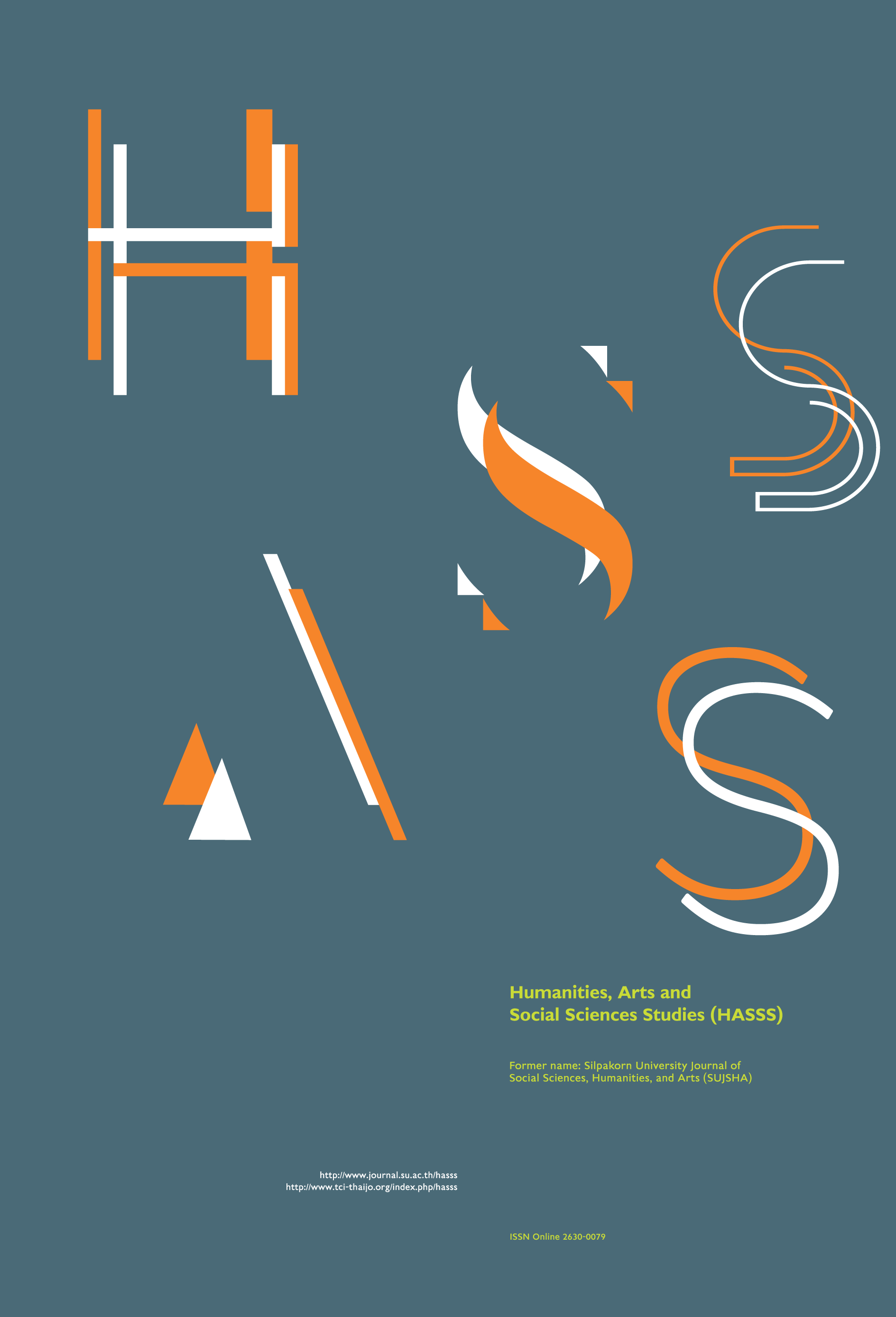The Curriculum Evaluation on Master of Education Program in Curriculum and Supervision, Faculty of Education Silpakorn University
Main Article Content
Abstract
The purposes of this study were to 1) evaluate context of curriculum 2) evaluate input factors of curriculum 3) evaluate processes of curriculum 4) evaluate product of curriculum 5) evaluate the impact of curriculum. The evaluation method used was the CIPPI Model. The target of this research were administrators, instructors, students, graduates and educates’ employers. The research instruments included the interview form, the questionnaires, and focus group discussion. The collect data were analyzed by using percentage (%), mean (X̅), standard deviation (S.D.) and content analysis. The results of the study were as follows:
1) The context of curriculum showed that the objectives in curriculum are clearly. Curriculum structure relate with title and objectives. The subjects in curriculum in overall are appropriate at highest level and appropriate arrange in educational plan.
2) The input factors of curriculum found that the overall were in high level. And have 2 items were at highest level: curriculum have learning resources that support learners and have good classrooms and materials management.
3) The process of curriculum for learning management in overall at highest level and found variety of learning management focus on classroom interaction and integrate contents with works experience include implement concepts learning to solve problems by research system.
4) The product of curriculum found that graduates had transformation knowledge ability in curriculum, instruction and supervision in their works and academics committee and in learning management.
5) The impact of curriculum found that the product can transfer the knowledge and experiences in curriculum, instruction and supervision to role of work.
Downloads
Article Details
All rights reserved. Apart from citations for the purposes of research, private study, or criticism and review,no part of this publication may be reproduced, stored or transmitted in any other form without prior written permission by the publisher.
References
Kanchana Kunalak (2000) The basic curriculum development. Nakhon Prathom: Silpakorn University printing.
Maream Nillapun. (2001) The evaluation of Doctor of Philosophy (Curriculum and Instruction), Faculty of Education, Silpakorn University.
Maream Nillapun (2010) Research methods in education. Fifth Edition: Nakhon Prathom. Research and Development Center. Faculty of Education, Silpakorn University.
Maream Nillapun and et al. (2012) the evaluation of Master of Education (Curriculum and Supervison), Faculty of Education, Silpakorn University.
Ministry of Education (2005) The announcement of the Ministry of education about the standard graduate courses in 2005 Vol.122. Special Edition 39 D.Government Gazette 25th May 2005: 14-15.
Ministry of Education (2009) The announcement of the Ministry of education about The national higher education standard in 2009 Vol.126. Special Edition 125 D. Government Gazette 31th August 2009 :17-19.
Ministry of Education (2015) The announcement of the Ministry of education about The management concept of higher education standard in 2010 Vol.132. Special Edition 295 D. Government Gazette 13th November 2015:25-30.
Nuanchawee Prasertsuk and et al. (2008) The evaluation of Master of Arts (Community Psychology), Silpakorn University. Faculty of Education, Silpakorn University.
Oliva, P. F. (1992) Developing the Curriculum. 3rd ed. New York: Harper Collins. Sa-ngad Uthranun (1989) The basis and principles of curriculum development Third Edition: Bangkok. Faculty of Education (Educational Administration), Chulalongkorn University.
Saylor, G. J. and Alexander, W. A. (1974) Planning Curriculum for Schools. New York: Holt, Rinehart and Winston Inc.
Stufflebeam, D. L. (2003) “The CIPP model for evaluation.” In The international hand book of educational evaluation. Chapter 2. Edited by Stufflebeamand, D. L., Kellaghan, T. Boston: kluwer Academic Publishers.
Sumit Kunanukorn. (1980) Curriculum and instruction. Bangkok. ChuanpimPrinting.
Sutep Uamcharoen. (2014) Curriculum Development: Theory and Practice. Nakhon Prathom. Silpakorn University printing.
Sutthilak Kananun. (2005) the evaluation of Master of Education (Educational Administration), Faculty of Education; Uttaradit Rajabhat Institution, Master of Education (Educational Administration), Uttaradit Rajabhat University.
Taba, H. (1996) Curriculum Development: Theory and Practice. New York:Harcourt, Brace and World Inc.
Thamrong Buasri. (1989) Curriculum theory: design and developmentSecond Edition. Bangkok. Kurusapa Printing.
Thirasak Unaromlert and et al. (2009) The research of Master of Education (Development Education), Faculty of Education; Silpakorn University.
Tyler, R. W. (1949) Basic Principles of Curriculum and Instruction.Chicago: University of Chicago Press


